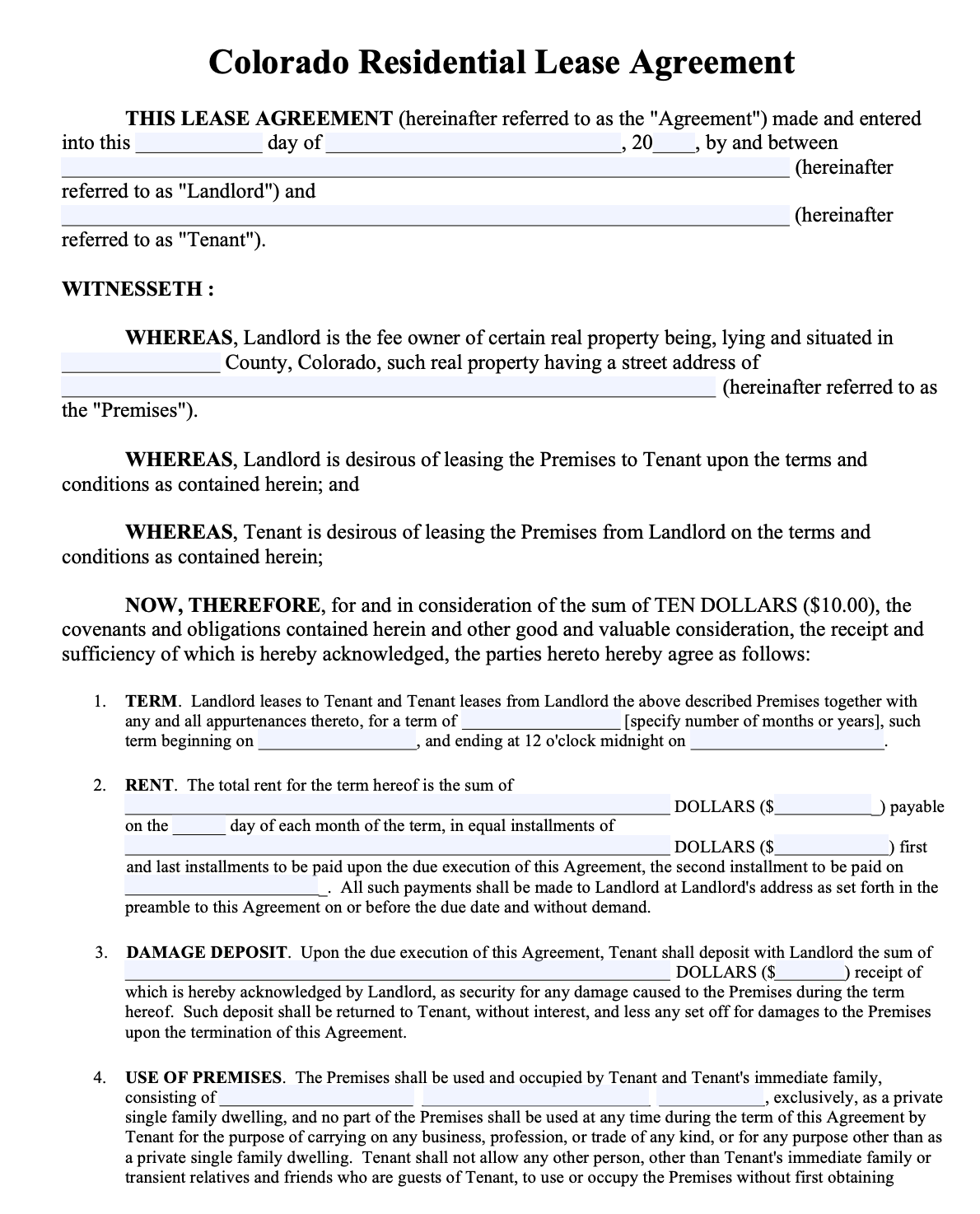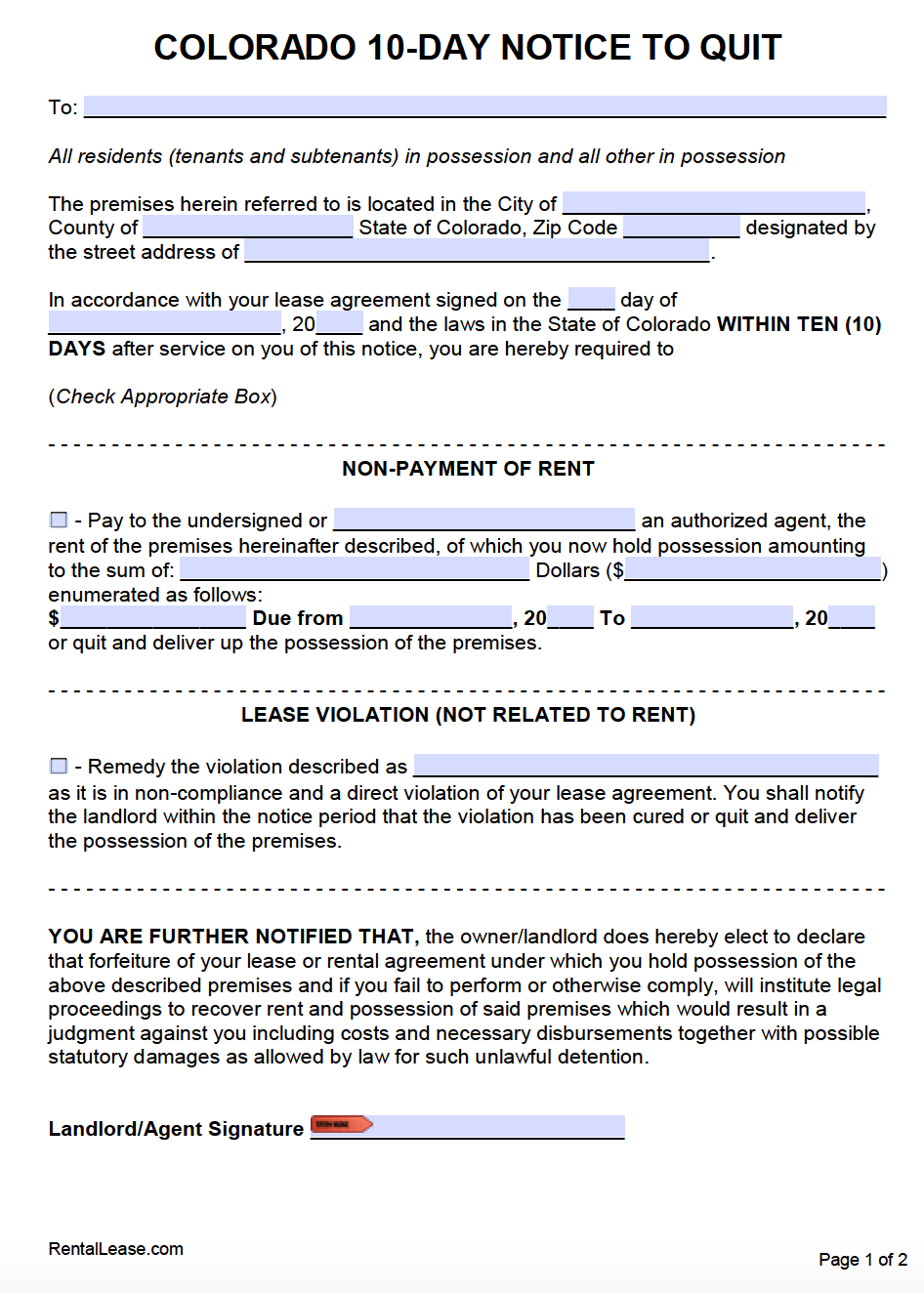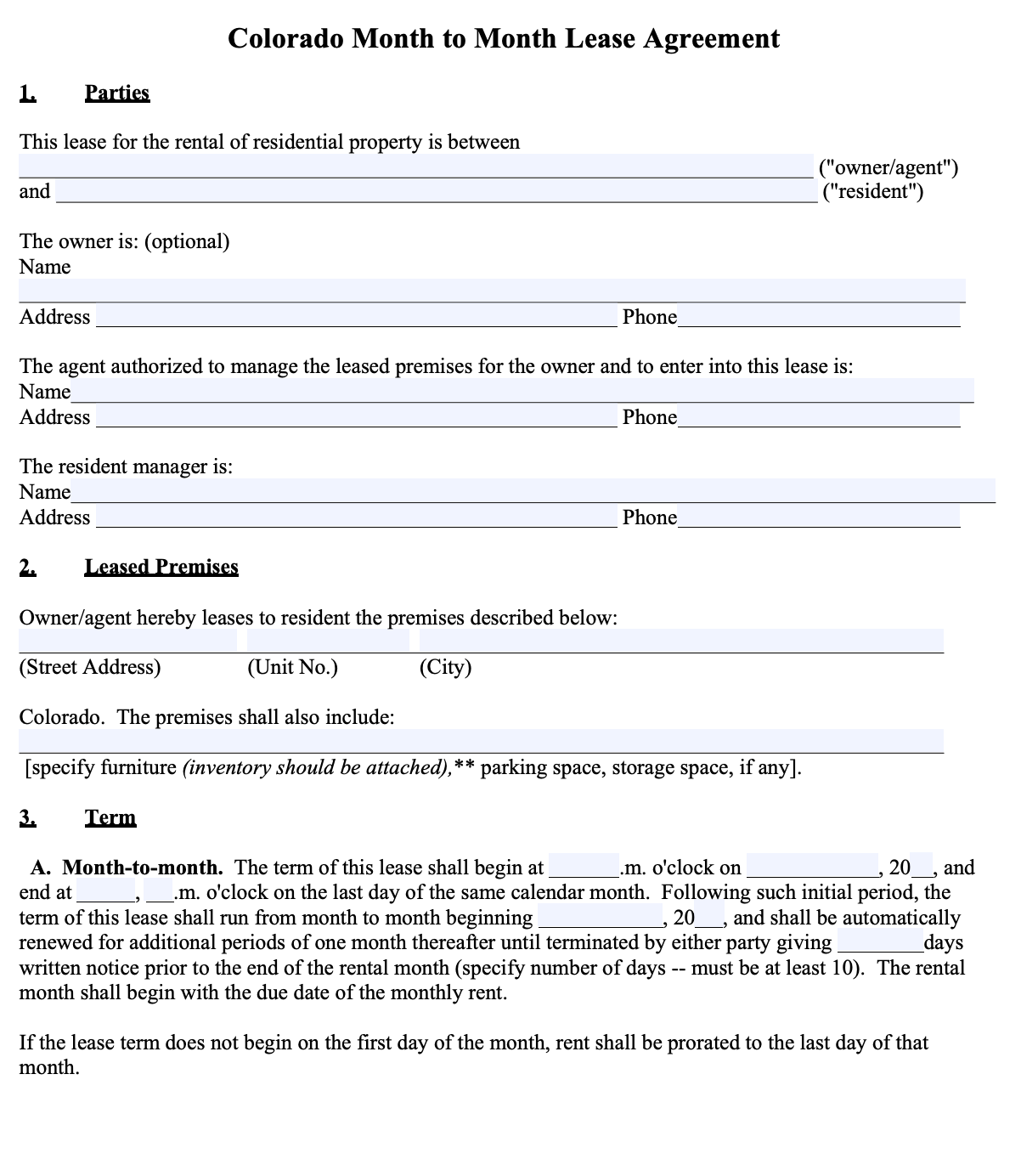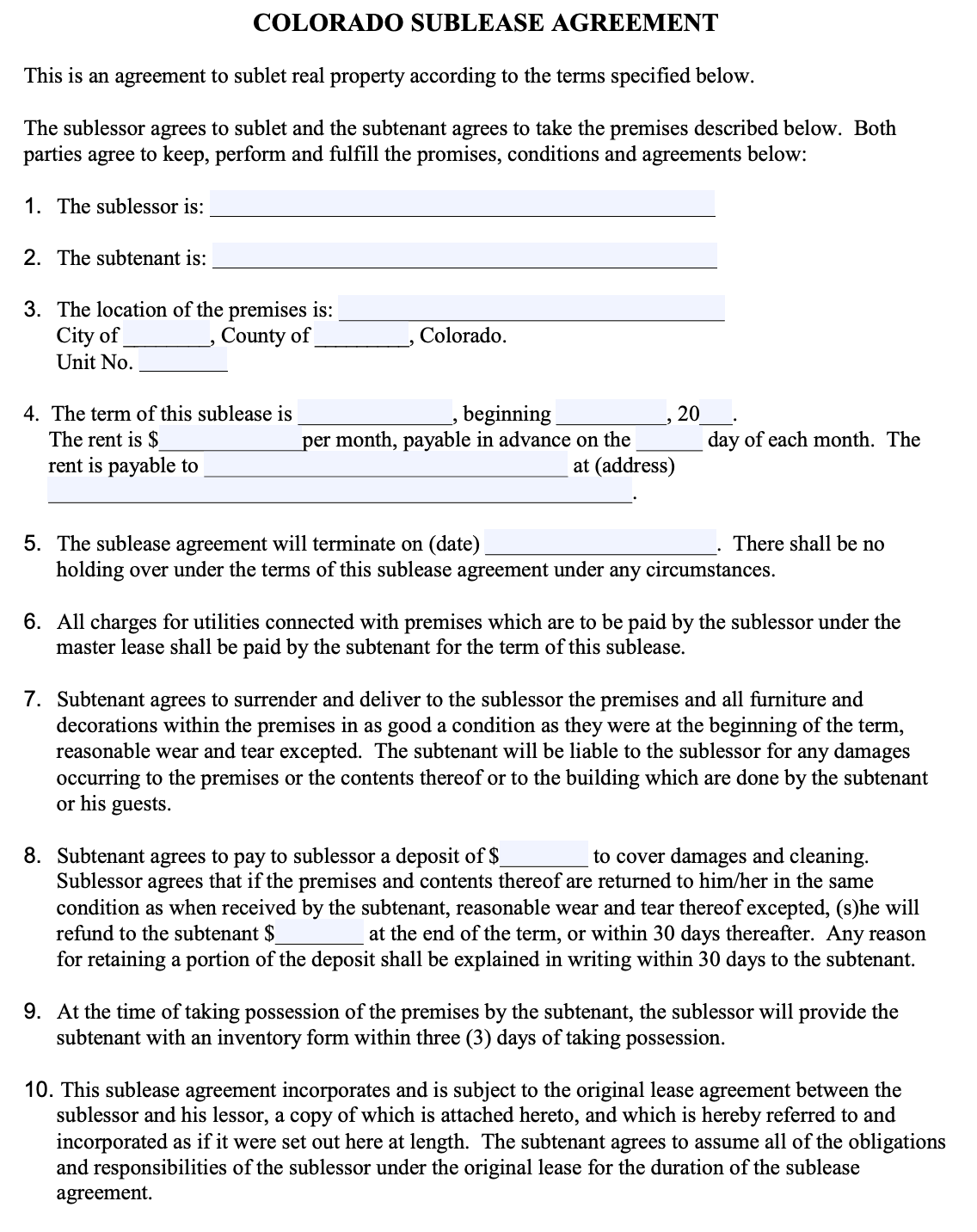
Colorado lease agreements bind a landlord and tenant for the renting of residential or commercial property. The tenant will be obligated to pay monthly rent payments and keep the premises under the same condition as the occupancy date, wear-and-tear excepted. Before a lease is signed, the landlord will commonly screen the tenant through a rental application.

The Colorado Standard Residential Lease Agreement is a document that enables a landlord and tenant to solidify an arrangement wherein the tenant rents a residential property for a one (1) year term in exchange for monthly rent payments. A longer term can be negotiated and written into the contract if both parties agree. Due to the binding nature of the lease agreement, it is recommended that the landlord screen their potential tenants through a rental application to ensure that they…
66,781 Downloads
The Colorado ten (10) day notice to quit form is a document given to tenants by landlords when they are n violation of their lease agreement. Generally speaking, the form is delivered if they are behind on rent; however, it may be that the tenant is in violation of their lease agreement in another manner and they will be required to remedy the situation if they wish to remain on the premises. The notice to quit form will provide the landlord…
28,619 DownloadsA Colorado Rental Application is a document that a landlord can use to ensure that the tenants he/she allows will be reliable and respectful of the rental property. The form asks for the applicant’s current employment status, the amount of money they make on a monthly basis, as well as any other income that comes in from a secondary or tertiary source. The same information will be required of any co-habitants. If the landlord deems the tenant financially able to pay…
14,719 Downloads
The Colorado Month-to-Month Lease Agreement enables an arrangement between a lessee and a lessor wherein there is no lease termination date. Instead, the agreement renews every month, providing both parties with the ability to opt-out with comparatively short notice. This type of lease agreement is especially favorable for tenants who are not looking to reside at a location for the standard one (1) year term that one would be obliged to subscribe to in the usual residential lease agreement. Rent Increase (§…
12,639 DownloadsA Colorado commercial lease agreement is designed so that a property owner may lease out his or her property to a retail, office, or industrial business in exchange for monthly rent. The landlord should keep in mind that payments may be irregular or not in full because it may take weeks to even months for a new business to generate sufficient income. A commercial lease agreement can be made up in three different ways; Gross, Modified Gross, and Triple Net (NNN),…
10,471 Downloads
The Colorado Sublease Agreement allows the original tenant of a rental property, called the “sublessor” to rent out the same property to another individual called the “sublessee.” Both the original tenant and the new sublessee pay the monthly rent, although the original sublessor is still in charge of payment and communication with the landlord. If there is no clause in the master lease regarding subletting, it is recommended that the landlord be contacted to request permission. Regardless, the primary tenant…
6,564 DownloadsLead-Based Paint Disclosure (Form LP46-9-12) – Required for all housing units constructed prior to 1978 as it provides a warning as to the possibility of lead-based paint on the premises of the property.
Agent/Broker/Realtor Disclosure (Form BDT20-5-09) – Only for use when a real estate salesperson assisted the tenant in finding their space.
Maximum – There is no State statute which sets a limit on how much a landlord may charge their tenant for a security deposit.
Returning (§ 38-12-103) – A landlord must return to the tenant the entirety of the security deposit within one (1) month of lease termination unless the lease agreement specifically states longer but it cannot be for more than sixty (60) days.
While there are no State statutes which explicitly define the notice period required of landlords before entering the premises, it is considered common courtesy to provide a tenant with twenty-four (24) hours’ notice.